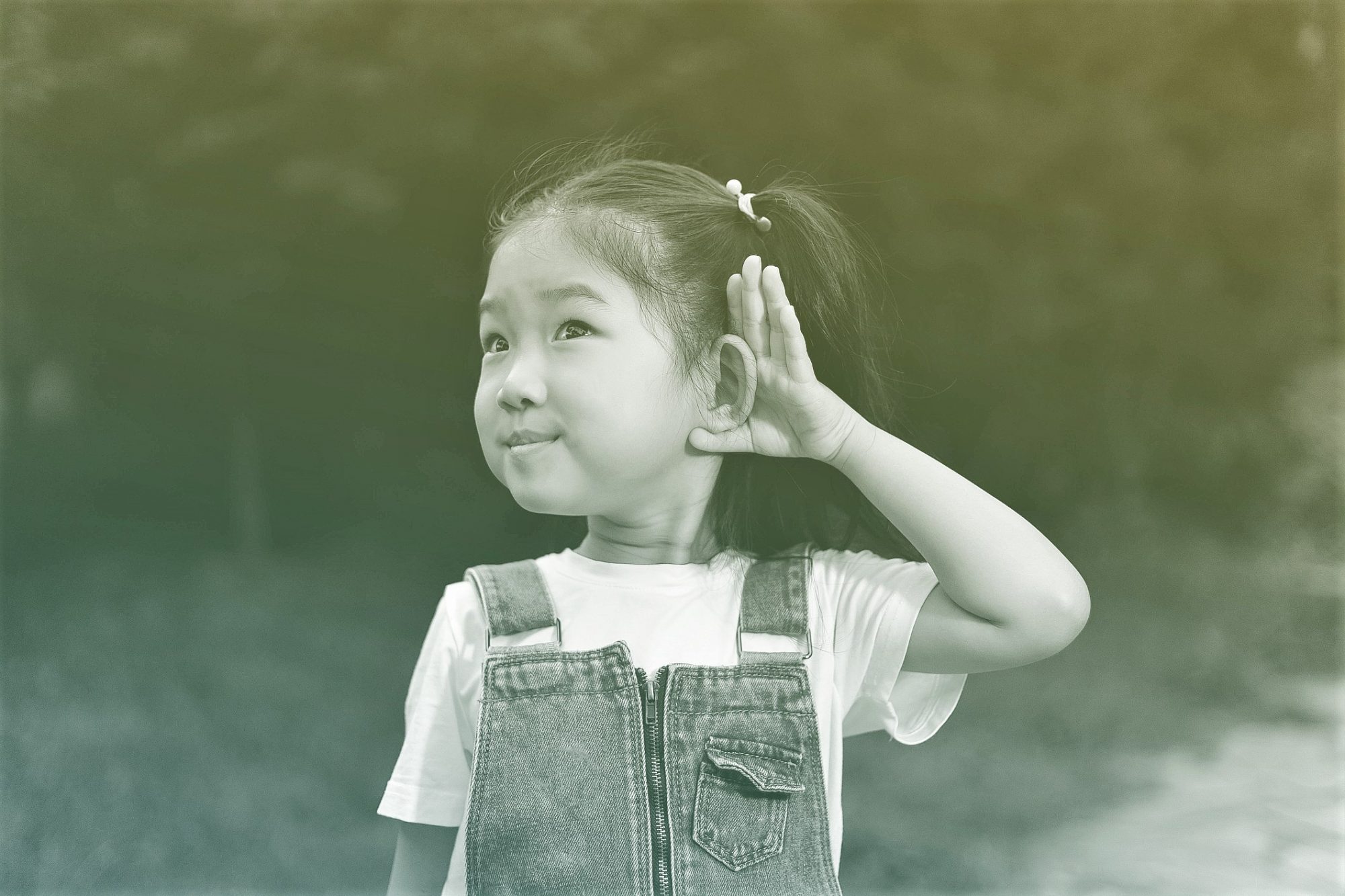
As a mom of three kids all 10 and under, I have grown accustomed to watching my language around my children. What I never thought to do, though, was watch what I say when having private conversations when my kids aren't in sight.
But recently, my husband and I were recounting some sordid details over a feud between two friends. Those friends each have kids who are friends with our 10-year-old son and he seemingly took a shine to our conversation unbeknownst to us. Several days later, my son began to ask some rather pointed questions and that's when I realized that some conversations I have with my husband are no longer private; there are ears listening and they might repeat what we say.
Kids are little parrots. That's just a truth of parenting. For the first few years of childhood that truth can be humorous like when kids mispronounce new words and phrases or repeat certain parts of private conversations at hilariously inconvenient moments. But when kids begin to eavesdrop and collect details of serious conversations not meant for their ears, well, that's when parenting can feel particularly challenging.
Luckily, it's an anticipated part of childhood that parents can expect, which means that yes, eavesdropping, for the most part, is normal. But experts explain why kids do it and how to get them to stop listening in when they shouldn't be.
Why Do Kids Eavesdrop?
By the time kids reach the tween age, they are fascinated by the adult universe while still being equally engaged in their kid world. They are trying to figure out how adults work and that can include all the tricky aspects of how we talk and what we share.
That's why for many kids, especially of the tween age, eavesdropping might just be a sign of trying to figure out what being an adult means. "They want to learn about the world and are figuring out how adults think and feel, basically, they want to figure out how to transition into adults themselves," says Samantha Rodman, Ph.D., clinical psychologist in Maryland and founder of Dr. Psych Mom, a website focused on parenting and relationships.
How to Stop Kids from Eavesdropping
Despite kids being naturally curious, that doesn't mean it's always appropriate for them to listen in to what their parents say. Conversations that aren't age-appropriate may even cause anxiety in kids. Putting your proverbial foot down and letting your kids know in no uncertain terms where the boundaries around private and shared conversations exist is not a bad thing.
When kids start to inject themselves into conversations, however inappropriately, parents should feel empowered to redirect. You can let them know you are entitled to your privacy as are they. Tell them they can come to you if they have questions about topics, says Dr. Rodman, but make it clear "everyone deserves privacy and to be able to have an intimate conversation with a friend or partner."
Don't feel bad about setting some ground rules around when you deserve your privacy either, experts say. For example, you can let kids know they shouldn't listen to your conversations when your bedroom door is closed.
It's also OK to make your need for privacy obvious—even during the pandemic when there is often less alone time and more room for eavesdropping whether kids mean to or not. "Don't be scared to go into a closed room to talk to your partner, even when kids are awake," says Dr. Rodman. "You need an adult private relationship; that is typical and normal."
Eavesdropping Can Be a Teaching Moment
Keep in mind, open communication can clear up a lot of misunderstandings. Ask your kids questions to understand what they are looking for or hoping to hear when they eavesdrop. That's especially necessary during the pandemic when some kids may become more eager to listen in because of their anxiety.
"Right now, tweens, along with the rest of us are trying to figure out what is going on, what is safe, how to survive, and how to thrive," says Dr. Lindsay Weisner, Psy.D., a clinical psychologist on Long Island, New York, and author of Ten Steps to Finding Happy: A Guide to Permanent Satisfaction. "The smartest thing to do is to gather information."
And always find a way to answer your kid's questions when they come to you about a topic, whether they heard it through eavesdropping or not. "Personally, and often professionally, I have found that when a child, tween, or teen asks the question, they are ready for the answer," says Dr. Weisner.
Conversations like these can lead to healthy engagement with your kids. "Even if parents could or should completely prevent eavesdropping based on things that were not child appropriate, children are very likely to hear things from other kids," says Dr. Weisner. "I would rather them hear it from me. An eavesdropping child gives the parents an opportunity to explain in an age-appropriate manner, especially since we are in a pandemic and privacy is a thing of the past."
The Bottom Line
Next time you catch your kids listing in on conversations, take a deep breath and know that this a typical response as they learn about the world around them. But there's nothing wrong with letting them know when it's inappropriate for them to be listening to your conversations.
